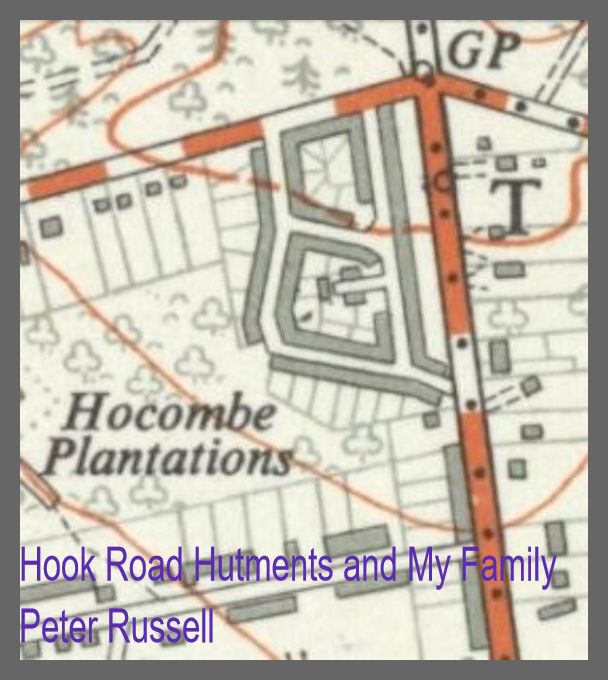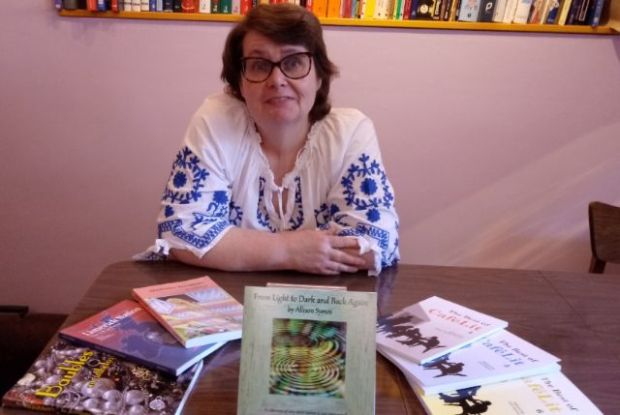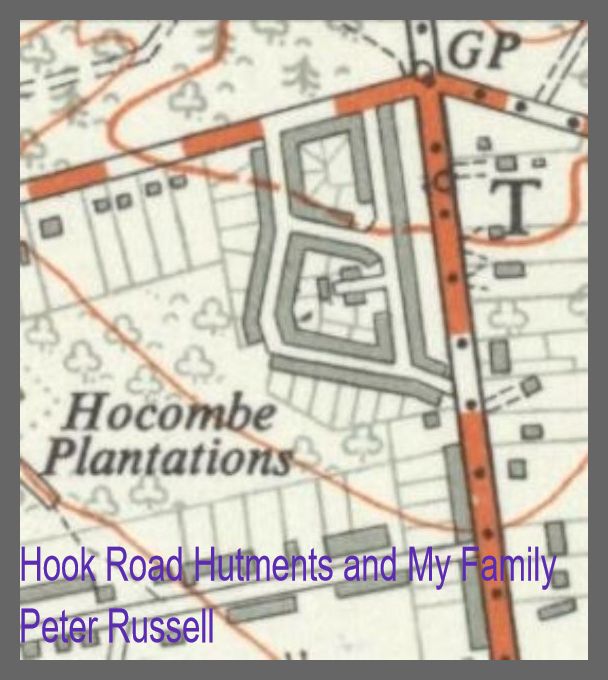Image Credit: Unless otherwise stated, all images are from Pixabay.
Facebook – General – and Chandler’s Ford Today
My CFT post this week (Progress and Success and How to JudgeThem) was inspired by thoughts on what makes a writer successful. Is it having multiple books out? Is it having a movie option on your book (which would rule most of us out!)?
So I thought I’d look at what I think would count as progress and success. The trouble with both of these things is they can be hard to measure. This is where science has the advantage – it is much easier to define progress and success there. Note I say easier. It’s not the same thing as easy though!
I also look at this topic particularly from a writer’s viewpoint and share why I think there can’t be a one size fits all for writers. I also share what I think would be progress and success for humanity. Very much one of those “if only” thoughts…
Captions as ever over on CFT.
Enjoying the latest series of Tom Wrigglesworth’s Hang-ups (Radio 4). Great characterisation and dialogue.
My CFT post this week is about progress and success and how to judge them. Link up tomorrow. I’ll also be on the ACW More Than Writers’ blog tomorrow with a piece about history in stories. (I’m looking at this from a character history viewpoint and working out what you leave out of the actual story). I’ll put the link up for that tomorrow as well.
Happily writing further flash fiction stories. I often write these a batch at a time. I hope to edit my short story for a competition this weekend too. Making good progress on the novel though I know I won’t be submitting it anywhere this side of Christmas. Hope to get it submitted sometime during January though.
Also want to get a few blogs drafted in advance at some point to try and be more “efficient”! Scheduling posts is a great idea and I need to do this more often. No – tonight’s one wasn’t an advance one!
A big thanks to all who reacted and/or commented on my lighthearted post about the signs of being a “proper” writer (which I’ll repeat here shortly). I love writing fun posts like that.
Of course the real answer to being a “proper” writer is that if you write regularly, you are a proper writer and that’s it. By regularly, I would define that as being committed to writing no matter what, whether you write for several hours a week or can only manage 15 minutes every other day etc. If you can’t imagine your life without writing in it somewhere, that’s a pretty good sign too!
I’ll be talking about progress and success and how to judge them in my Chandler’s Ford Today post this week. Link up on Friday. I’ll be taking a look at this topic as it applies to writers too.
I think this lighthearted post is worth repeating. Many thanks to all for the reactions and comments to it. Much appreciated.
How do you know if you’re a “proper” writer?
1. You scorn the very idea you have too many notebooks.
2. You develop a thing for collecting nice pens too, some of which you will actually use.
3. You dread power cuts as they always seem to happen in the middle of a writing session.
4. You have the great joy of having a number of books written by friends on your shelves.
5. You are even more thrilled when your works are on the same shelves!
6. You can’t wait to tell everyone your latest publication news.
7. You open the latest copy of Writing Magazine and look for people you know in the letters page and the Subscribers’ sections in particular.
8. You feel a little miffed when you come across an issue when there isn’t someone you know in it. (It’s a kind of something’s not quite right with the world feeling).
9. Launches, especially online ones, are a regular part of your life and you love them all.
10. Your TBR and TBW piles never diminish but that’s the way you like them.
11. There is no such thing as having too many books. What you CAN have is not enough shelving.
12. You just feel SO at home in book shops and libraries.
Okay, guilty as charged on all those. How about you?
Facebook – From Light to Dark and Back Again
Time for a flash story to end the working week with. Hope you enjoy.
The End of the World
He was going to miss the end of the world. He was late. Of all the days this could happen, it had to be this one.
It was all over the media – the world would end at midnight on Wednesday, 3rd June.
It never occurred to him to ask about the oh-so convenient timing and how could anyone be sure of the exact date anyway when, even in the Bible, there were warnings against those predicting such things.
All he knew was he had to get to a good vantage point to witness first hand the last moments of the world.
It was a pity really. On the way to the top of St. Giles’ Hill in Winchester, he was run over by a bus that was also running late.
They put the time of his death as midnight, Wednesday June 3rd.
Ends
Allison Symes – 29th November 2019
Drafted a couple of flash fiction stories yesterday based on a couple of phrases conjured up thanks to a random phrase generator.
It also occurred to me that a random letter generator could also be useful. You can use an electronic one or pick a letter at random from a Scrabble set. Some thoughts here:-
1. Take one letter and write a story where the opening word of every sentence starts with that letter. For example, M – Mary had no regrets about her life of crime. Misuse of a library book WAS a crime. Mind you, the miserable little wotsit behind the offence wasn’t going to be bothering her and the rest of the library staff for some time. Mary wondered how long it would take for the idiot to get out of the handcuffs and locked room down in the basement.
2. Take one letter and use it for every word in a sentence. For example the letter D – Daft duck drives dumpers daily! (Could have great fun generating some nonsense but this could be a useful way into a writing session or a way from winding down from an intensive time at the old desk).
3. Take one letter and use it for the opening and closing word of a sentence. (Could be a challenge though if you get the Q!). (Example: Queenie happily chomps quiches!).
Have fun!
Flash fiction is a great vehicle for telling a story from an alternative viewpoint. As you know, I am very fond of fairytales told from said alternative viewpoint, not least because my first story in print, A Helping Hand, was precisely that type of story. (It’s the Cinderella story as seen through the eyes of the younger stepsister and can be found in Bridge House Publishing’s Alternative Renditions anthology). (Link takes you to my Amazon Author Central page where you can find Alternative Renditions).
I find these stories huge fun to write (and indeed to read) but the sharp focus of flash fiction I think makes them work even better. It forces you to focus on what is really important for that alternative viewpoint to get across.
It’s not enough for say Character C to rant about how Character A got all the breaks. What an alternative viewpoint story should show is why Character C deserved to do as well if not better than Character A. It’s then up to the reader to decide whether the character has a point or not!
Association of Christian Writers – More than Writers – History In Stories
It’s that time again – time for my monthly blog spot for the Association of Christian Writers. I look at history in stories from the viewpoint of character histories. What do you need to know about your characters before you write their stories? What do you need to know but don’t need to put in the story itself? Hope you enjoy. Captions over on the More Than Writers blog.
Fairytales With Bite – A to Z of Fairytale “Rules” – Part 2
G = Generosity. You can guarantee those characters who are generous in heart, especially to those less fortunate than themselves, will do well in the fairytale world. Fairy godmothers will be falling over themselves to assist! So be generous!
H = Honesty. What is the point of lying to a magical being? They’re going to know. Honest characters do well. What I loved about Puss in Boots was the master knew full well the cat was far smarter than he was. Good man. Credit where it is due and all that. Again, be honest.
I = Integrity. There is a definite theme developing here and that’s not coincidental. Again, those characters with integrity such as Beauty from Beauty and the Beast prosper. The fairytale world knows what it likes and rightly sticks to those things. So keep hold of your integrity. In the fairytale world at least it makes all the difference. (It ought to here as well but that’s another matter).
J = Judgement. The fairytale world has a strong sense of what’s right and wrong and will ensure justice is done. Beast from Beauty and the Beast was punished for his arrogance and had to learn humility and to win true love before being set free from his curse. Evil does not prevail here (though it doesn’t necessarily mean there are sugar sweet happy endings to every story. Just look at Hans Christen Andersen’s The Little Mermaid). Judgement is always proportional too.
K = Kindness. It pays to be kind to people in the fairytale world. So many of the wizened old people turn out to be wizards or fairy godmothers in disguise! So be kind…
L = Love. As well as the romantic love, the fairytale world celebrates love. Take the story of Hansel and Gretel as one example. I also loved Bella’s love of books in the Disney version of Beauty and the Beast. I guess I would! It could be argued that magic and love power the fairytale world.
M = Mayhem. This is common in the fairytales until a magical being comes along to put things right. My favourite example is the mayhem caused in the Emperor’s New Clothes by a child shouting out the truth! (You’ve almost got to admire the rip-off merchants who “stung” the Emperor and made him look like an idiot). Always look for the one causing mayhem in a fairytale. They’re the ones to avoid.
N = Names. Names are important and have meaning, as Rumpelstiltskin would be the first to testify. The important thing for a fairytale character is to keep their good name.
More next time…
This World and Others – Top to Bottom
When you set out to create your fictional world, what do you focus on? How it is governed (the top) or how the practical stuff is done (the bottom)? Is there a class system? Can characters better themselves or are they expected to stay within their allocated class? Now you can guarantee that just asks for someone to rebel so how do they do so and what do they achieve?
By having a good idea of how your world works, you will write it with a conviction that comes through to a reader so it plans to to deduce what it is you need to know first.
Good luck!











































































































































































































































